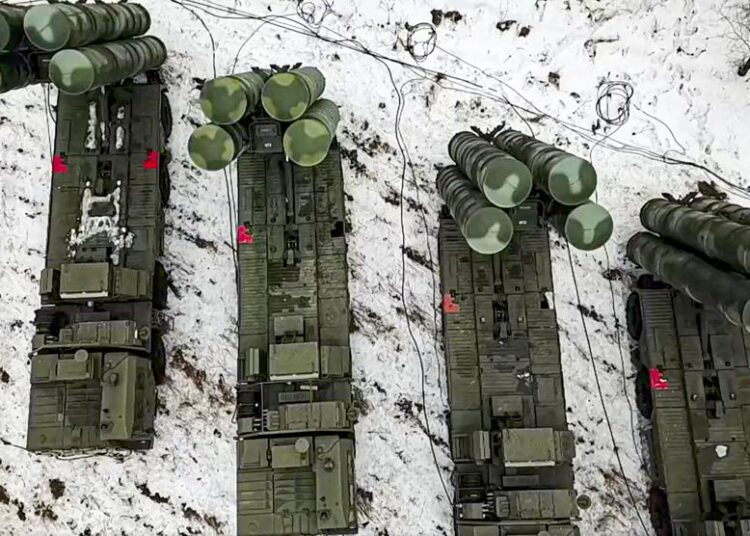MOSCOW — Britain’s top diplomat urged Russia on Thursday to defuse tensions over Ukraine and take the path of diplomacy even as thousands of Russian troops engaged in sweeping maneuvers in Belarus as part of a military buildup near Ukraine that has fueled Western fears of an invasion, AP reported.
UK Foreign Secretary Liz Truss again warned Russia that attacking its neighbor would “have massive consequences and carry severe costs,” urging Moscow to abide by its international agreements that commit it to respecting Ukraine’s independence and sovereignty.
Seated across a table from Truss with a grim face, Russian Foreign Minister Sergey Lavrov set a stern tone for the talks, emphasizing that Moscow won’t accept Western lecturing.
“Ideological approaches, ultimatums and moralizing is a road to nowhere,” Lavrov said, noting that his talks with Truss marked the first meeting of the two countries’ top diplomats in more than four years. Russia-U.K. ties have been badly strained by the March 2018 poisoning of former Russian spy Sergei Skripal in England and other sources of tension.
Russia has concentrated more than 100,000 troops near Ukraine’s border and launched a series of military maneuvers in the region, but says it has no plans to invade the nation.
Moscow wants guarantees from the West that NATO won’t allow Ukraine and other former Soviet countries to join as members, and for the alliance to halt weapon deployments to Ukraine and roll back its forces from Eastern Europe. The US and NATO flatly reject these demands.
During an exchange of icy comments after the British and Russian minister’s talks, Truss reaffirmed a strong call for Moscow to pull its troops back to their bases. Lavrov rejected the demand as inappropriate and pointed at British and NATO troop buildups in Eastern Europe.
“The demands to remove the Russian troops from the Russian territory cause regret,” Lavrov said. “We don’t want to threaten anyone. It’s us who are facing threats.”
He alleged that Western politicians were fanning tensions over Ukraine for domestic political purposes. Russia planned from the start to move its troops back after conducting mandeuvers, Lavrov said, and once it does, “the West will likely claim that it has forced Russia to deescalate.”
The U.S. has begun to move the 2nd Cavalry Regiment’s stryker squadron from Vilseck, Germany, to Romania, which borders Ukraine. US officials have said they would send about 1,000 NATO troops.
About 1,700 soldiers from the US Army’s 82nd Airborne Division are being sent to Poland. About half of them have arrived, and more are expected to follow in coming days, Pentagon press secretary John Kirby said. Britain also has pledged to send 350 more troops to Poland and already has sent anti-tank weapons to Ukraine.
British Prime Minister Boris Johnson said Thursday after meeting in Brussels with NATO Secretary General Jens Stoltenberg that the Russian military buildup near Ukraine marks “the biggest security crisis that Europe has faced for decades.”
“I honestly don’t think a decision has yet been taken” by Russia about whether to invade Ukraine, adding that “Our intelligence, I’m afraid to say, remains grim.”
Stoltenberg echoed that, noting that “the number of Russian forces is going up, the warning time for a possible attack is going down.”






Discussion about this post